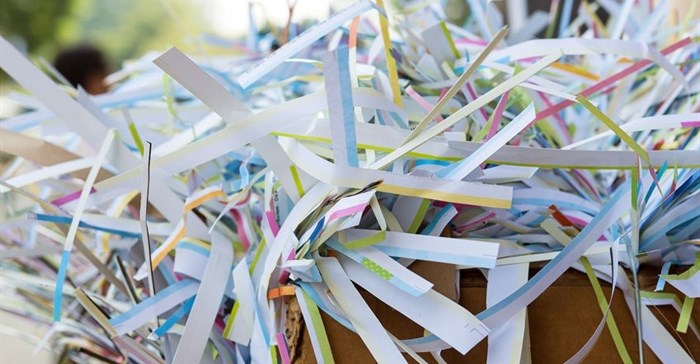
Top stories

Marketing & MediaCould an alcohol ad encourage children to climb into washing machines?
Karabo Ledwaba 3 hours

Energy & Mining#MiningIndaba: Is South African mining ready for the skills of tomorrow?
Maroefah Smith 5 hours




More news















We have uncovered a few examples how practical sustainability challenges can be tackled with a level of innovation that is forward-looking, effective and, most of all, exciting.
With the rise of fast fashion, the circular economy is a practical way to prevent clothing from ending up in landfill and give it a new life. The textile industry can be surprisingly wasteful. Producing one kilogram of cotton fabric uses more than 20,000 litres of water - enough to fill several swimming pools. While garments left to decay are causing issues in landfills, leather takes 50 years to decay while nylon can take up to 40. As material extraction costs are also on the rise, it is more important than ever to reuse clothes and reduce the amount of textiles currently being wasted.
South African department store, Woolworths introduced The Clothing Bank in 2010, which not only benefits the environment but assists unemployed mothers too. Since its inception, Woolworths has donated over 1-million surplus garments to The Clothing Bank, which are then sold at discount rates to women, trained by the project, to sell in the informal sector.
In only four years the initiative trained 431 women whose businesses have generated collective profits of R14.6m from re-selling over 1.1-million surplus garments in townships, while helping to combat the rising problem of garments ending up in landfills.
One of the world’s biggest landfills isn’t on land but under the sea. The ocean floor is home to a vast accumulation of plastic bags, bottles and other detritus which can ensnare and harm marine life and which generally pollutes the water. A recent study has estimated that by 2025, up to 28-million tons of plastic will be discarded into the ocean each year.
A collaboration between sportswear brand Adidas and marine preservation non-profit organisation Parley for the Oceans aims to repurpose this waste. Constructed using 3D printing, the shoe consists of an upper sole made with ocean plastic content and a mid sole constructed with recycled polyamide and plastic filaments from discarded deep-sea nets. The trainers are not solely a prototype but will go on sale to the public later this year.
In 2010, retail giant Pick n Pay began stocking Fairtrade Label South Africa sustainably sourced wine and coffee.
Pick n Pay supports Fairtrade with a commitment to give preferential access to locally produced, fairly traded products and is the largest stockist of Fairtrade products nationally.
Through this initiative not only are the farmers benefiting, but the environment is too as all Fairtrade produce is farmed in environmentally ethical ways. The organisation's environmental standards focus on minimised and safe use of agrochemicals, proper and safe management of waste, maintenance of soil fertility and water resources, and no use of genetically modified organisms (GMOs).
The rate of global deforestation is slowing, thanks partly to the increased use of recycled paper. Lexmark has gone one step further and is re-using the paper used to print test pages to help meet a growing demand for product packaging. Over the past decade, the demand for packaging has accelerated, with global packaging sales estimated to reach $975bn by 2018.
Lexmark devised a scheme to turn its used paper into product packaging. Instead of recycling test pages, the company converts them into moulded pulp cushions which are then used to protect its cartridges during shipping. Cost-effective and practical, these cushions can also be recycled as they are made from 100% waste.
And the company’s sustainability efforts are, quite literally, laying the groundwork that will help others go the extra mile. In partnership with Close the Loop, Lexmark is recycling used toner to help construct TonerPave, an asphalt additive composed of recycled tyres, toner powder and recycled oil. Although initially designed for maximum environmental benefit, roads asphalted with TonerPave have superior characteristics to comparable roads with virgin raw materials. The addition of toner improves the quality and performance of asphalt, with the environmental benefit of lowering greenhouse gas emissions at no additional cost.
It only takes one idea to start a recycling revolution – but it takes a whole company to pioneer such innovative policies. To become a sustainability leader, companies need to be receptive to new ideas and build an innovative environment where they are given a chance to grow.
Recycling is at the heart of the circular economy and can be a powerful differentiator for brands wishing to put their innovation skills to good use. Supporting the environment and the circular economy shows today’s more environmentally conscious consumer that a company cares for the environment which encourages brand loyalty. That’s why taking a smarter approach to conserve our finite resources can transform not only a company or an industry, but also positively impact the bottom line.
